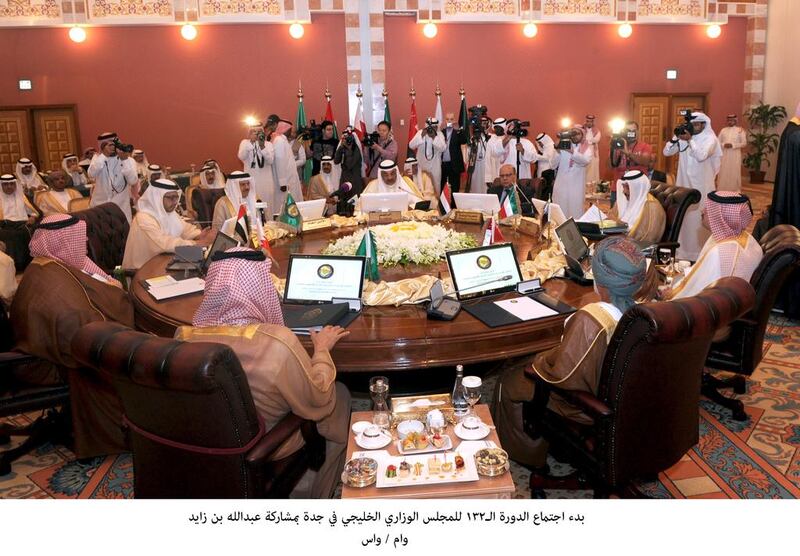ABU DHABI // Unity and cooperation among the Gulf states are the key to stability and prosperity, a senior minister said on Sunday.
Recent tension involving Qatar was “the most raging crisis in the history of the GCC”, Dr Anwar Gargash, the Minister of State for Foreign Affairs, said after a meeting of GCC foreign ministers in Jeddah.
“The ambience at the … meeting was positive,” Dr Gargash said on Twitter. “Frameworks for the implementation of agreed commitments are in place and we hope they achieve their purpose and that we move on from the crisis.”
He said the UAE’s approach had led to a strong belief that stability was a key priority. “We all have the responsibility to heal and restore confidence and rise above every small matter, both in words and actions, because we are all in the same boat, one we wish to be immune and strong,” he said.
“We must not allow those with an agenda to fish in troubled waters, especially at this time of rebuilding confidence, and we must realise that there are those who do not want us to succeed.”
Dr Gargash said the UAE’s interests lay in the Gulf, far from the region’s conflicts and disagreements. “Our success is a success for all and we must realise that our unity and cooperation are the key to our stability and prosperity.
“The past months were a harsh test and lesson, so let us join hands and entrench our home … joint efforts reap more achievements than individual action.”
Dr Theodore Karasik, director at the Institute for Near East and Gulf Military Analysis in Dubai, said it was important for the GCC to work out its differences because of the threat posed by the Islamist extremists from ISIL in Syria and Iraq.
“That is far more important than inter-GCC disputes at this time,” he said. “We are always hopeful that these differences can be worked out but they do remain and will be dealt with at another time.”
Dr Firuz Demir Yasamis, director of diplomacy at the American University in the Emirates, also urged Gulf countries to stick together. ISIL, he said, “is currently a much bigger threat and it is anticipated to become more so in the future.
“Their strategy and system are not an acceptable model so Gulf states must stand by each other to fight such a growing threat. This problem will be a contagious disease that is expected to affect neighbouring areas so GCC countries must unite.”
At their meeting on Saturday, the foreign ministers called for concerted regional and international efforts on counter-terrorism and the uprooting of all forms of terrorism and extremism, and stressed their commitment to tolerance and co-existence.
cmalek@thenational.ae






